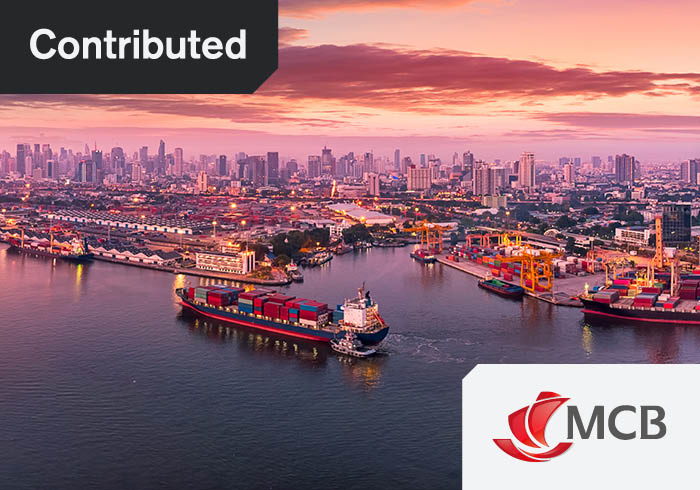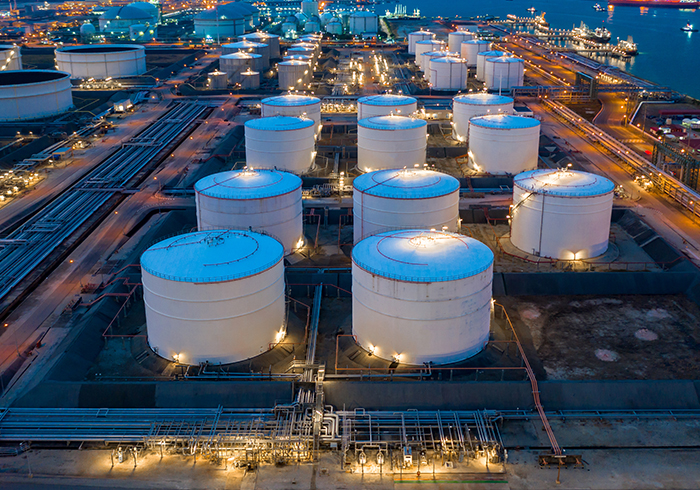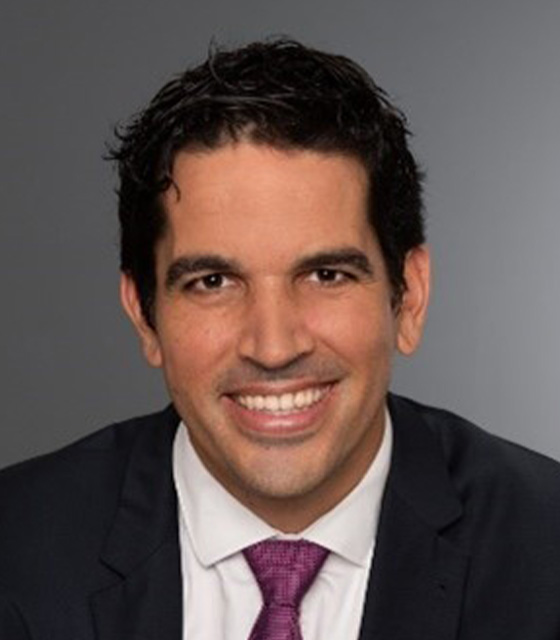In a pivotal year for African trade, MCB’s latest report and Trade Week initiative spotlight the continent’s resilience, sustainability potential and growing role in global supply chains.
In 2025, within a span of less than three months, MCB launched two initiatives that shed light on the enormous potential of trade opportunities on the African continent.
In March, MCB Group Limited launched ‘Harnessing Africa’s trade potential: Strategies for sustainable growth’, an in-depth and comprehensive report highlighting the continent’s economic resilience and untapped trade opportunities. In May, the Group organised its third annual Trade Week, with the aim to “tap into Africa’s trade potential with sustainable cross-border solutions in payment and supply chains”.
Highlights from the Trade Report
Based on insights gathered throughout Trade Week 2024, the report highlights key facts and figures about Africa’s trade ecosystem, providing strong grounds for optimism about the continent’s growth prospects.
First and foremost, Africa has shown significant economic resilience throughout recent years, despite various challenges such as geopolitical risks, the Covid-19 pandemic, and more. Indeed, the continent’s GDP growth is expected to rise to 4.2% in 2025, driven by improvements in economic activity and easing supply constraints.
Intra-African trade remains a critical focus, despite accounting for only 16% of the continent’s overall trade volume. Frameworks already exist to boost exchanges within the continent, with the African Continental Free Trade Area playing a pivotal role. To achieve this, addressing infrastructure deficits and harmonising trade policies is essential.
The world is currently navigating challenging times, hindered by growing concerns about climate change and its potential to disrupt economies. In this evolving landscape, Africa holds significant potential for sustainable trade.
The continent has an edge in sectors like agriculture and renewable energy. Africa, for example, is rich in critical minerals essential for the global energy transition, such as cobalt and lithium. Those assets position the continent as a key player in global green manufacturing and supply chains.
Going forward, the report identifies several enablers to efficiently structure sustainable trade as a key pillar of Africa’s growth. Investing in infrastructure, reducing
non-tariff barriers, enhancing financial systems and fostering political stability remain crucial to developing the continent as a vital hub for sustainable trade. That said, collaborative efforts between African nations and international partners are also essential for driving knowledge transfer and technological advancement.
Key takeaways from Trade Week
MCB’s Trade Week 2025 served as a successful collaborative platform, bringing together experts, clients, partners and internal teams to share views and experiences on the challenges and the future of trade. Top-tier speakers provided valuable insights on trade-related topics, including Sean Edwards, chairman of the International Trade and Forfaiting Association, Rebecca Harding, CEO of the Centre for Economic Security, Wilfried Giner, head of global France at Atradius, Olivier Lens, head of Sub-Sahara Africa at Swift and May Okail Wafa, head of Sub-Saharan Africa FIG at JP Morgan.
There was a clear energy around raising awareness of trade from both internal and external perspectives. The third edition of Trade Week reinforced MCB’s enthusiasm for Africa’s trade outlook. It also revealed a strong demand for insight, ecosystem access and end-to-end support.
Arnaud Levasseur, executive vice-president of Global Trade Solutions at MCB and director of MCB Trade Services, who led the organisation of the event, remains confident about Africa’s trade prospects. “We are in uncertain times, but this is also the push that we all need to revisit our way of doing things,” he says. “The message is now clear. If we work together and collaborate, we will become more resilient as a continent. Through the Trade Week and the Trade Report, we, at MCB, demonstrate how this shift is possible within the trade ecosystem.”
The event highlighted a growing focus on tackling structural trade barriers and helping clients access new markets and ecosystems.
Africa is at a crossroads, facing numerous challenges but also tremendous opportunities. As MCB CEO Thierry Hebraud aptly noted in his introduction remark to the Trade Report: “By forging strong collaborations with our partners and clients to find solutions for Africa by Africa, we can achieve a thriving trade ecosystem that benefits all.”
Download the report here.
CNOI: A sustainable and revolutionary cruise ship emerging from Africa
Chantier Naval de L’Océan Indien (CNOI), a premier shipbuilding and repair facility in Mauritius, is currently constructing Captain Arctic. The project, financed by MCB, is designed for luxury expedition voyages in the Arctic regions, including Svalbard, Greenland and Norway. Spanning 230 feet, Captain Arctic will host 36 passengers in 19 cabins, featuring interiors that blend minimalist design with refined elegance.
The ship will offer a range of eco-conscious amenities, including a restaurant, library, green-powered sauna and a scientific research lab, all crafted using sustainable materials. Its revolutionary propulsion system combines five tilting solar sails, each standing 35 metres high, made from aluminium and fitted with 2,000m2 of solar panels to capture wind energy. Additional power will be drawn from shaft generators, battery banks and hydro turbines integrated into the dual propeller shafts.
A pellet boiler fuelled by recycled wood waste will supply heat, while a biofuel engine powered by vegetable oil will serve as a backup. The ship will produce its own freshwater through reverse osmosis and operate under a zero-waste philosophy. An onboard organic food digester and an advanced water treatment system capable of converting black and grey water into potable water will also be featured.
Captain Arctic redefines eco-conscious expedition travel, seamlessly merging luxury with pioneering sustainability. Its construction by CNOI represents a major leap in sustainable maritime innovation and contributes to the advancement of African trade and industry. Through this landmark project, CNOI is positioning Mauritius – and Africa – as a rising force in the global shipbuilding sector.
This initiative reflects Africa’s growing presence in high-value industries such as sustainable technologies and advanced manufacturing. Building the ship in Mauritius also underscores the continent’s increasing capacity to deliver world-class, eco-friendly solutions, further integrating African businesses into global value chains.
Beyond innovation, the project strengthens local expertise, creates employment opportunities, and attracts investment, bolstering Africa’s footprint in both the maritime and renewable energy industries.







